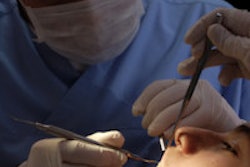British researchers have developed a device that can differentiate between normal and unhealthy cells by analyzing their electrical properties, which may provide early detection of oral cancer and other medical conditions.
The technology, called the 3DEP, was developed by University of Surrey researchers. The 3DEP works on the principle that when cells transition from a healthy to a diseased state, there is a change in their electrical properties, according to a press release.
Using a technique known as dielectrophoresis (DEP), cells are scanned by the 3DEP reader to determine their electrical properties and differentiate between normal and cancerous cells. In addition to the reader, the team has developed an inexpensive chip (which costs about $8 that contains the cells and is inserted into the reader.
Applications of the 3DEP instrument range from oral cancer detection to stem cell research and drug screening. Oral cancer is the sixth most common cancer worldwide.
The researchers are now conducting clinical trials to use the device to detect oral cancer in conjunction with the Eastman Dental Institute, the Royal Marsden cancer hospital, and the Bradford Royal Infirmary.
They are also working with University of California researchers to identify stem cells that can be used to repair damage in the brain. The research may help find solutions to chronic neurological conditions such as Alzheimer's disease, Parkinson's disease, and spinal cord injury.
The patented 3DEP system is marketed by DEPtech and is available through Labtech and via the DEPtech website. The project has already generated more than $1.6 million, which has been used for further research.



















